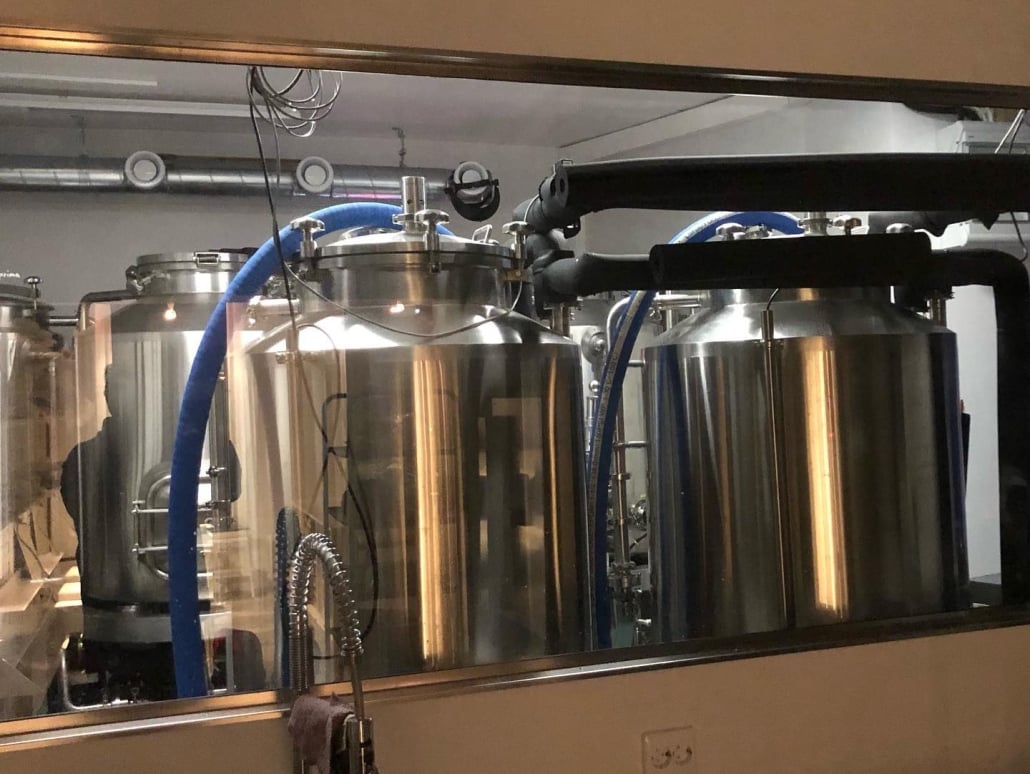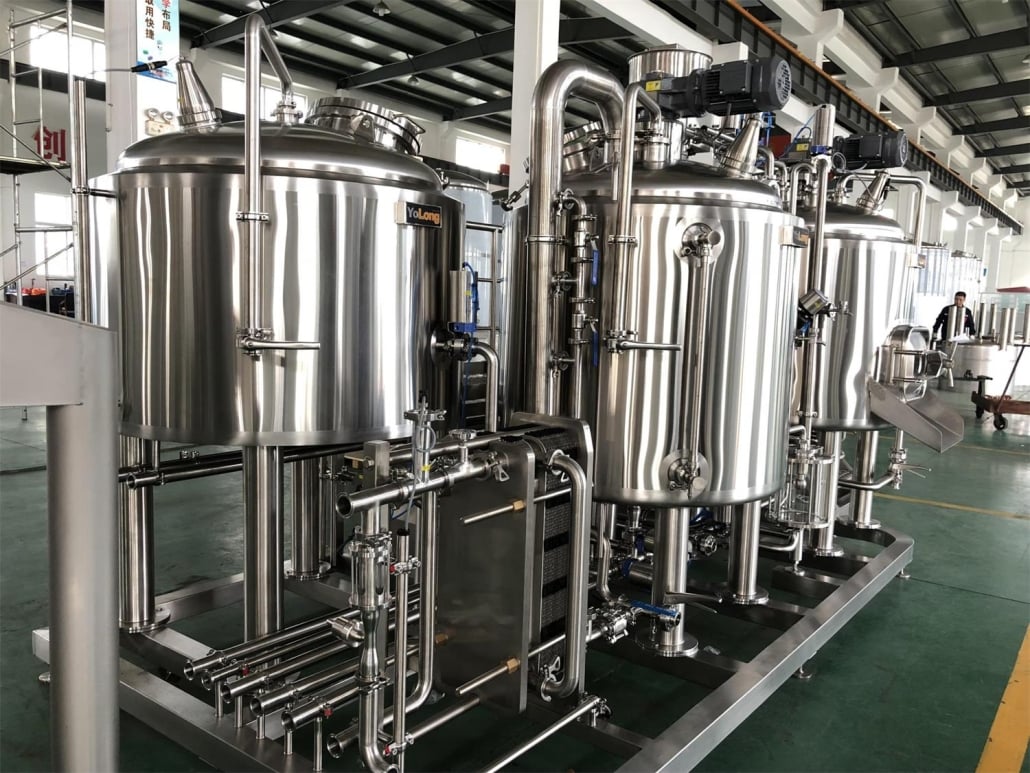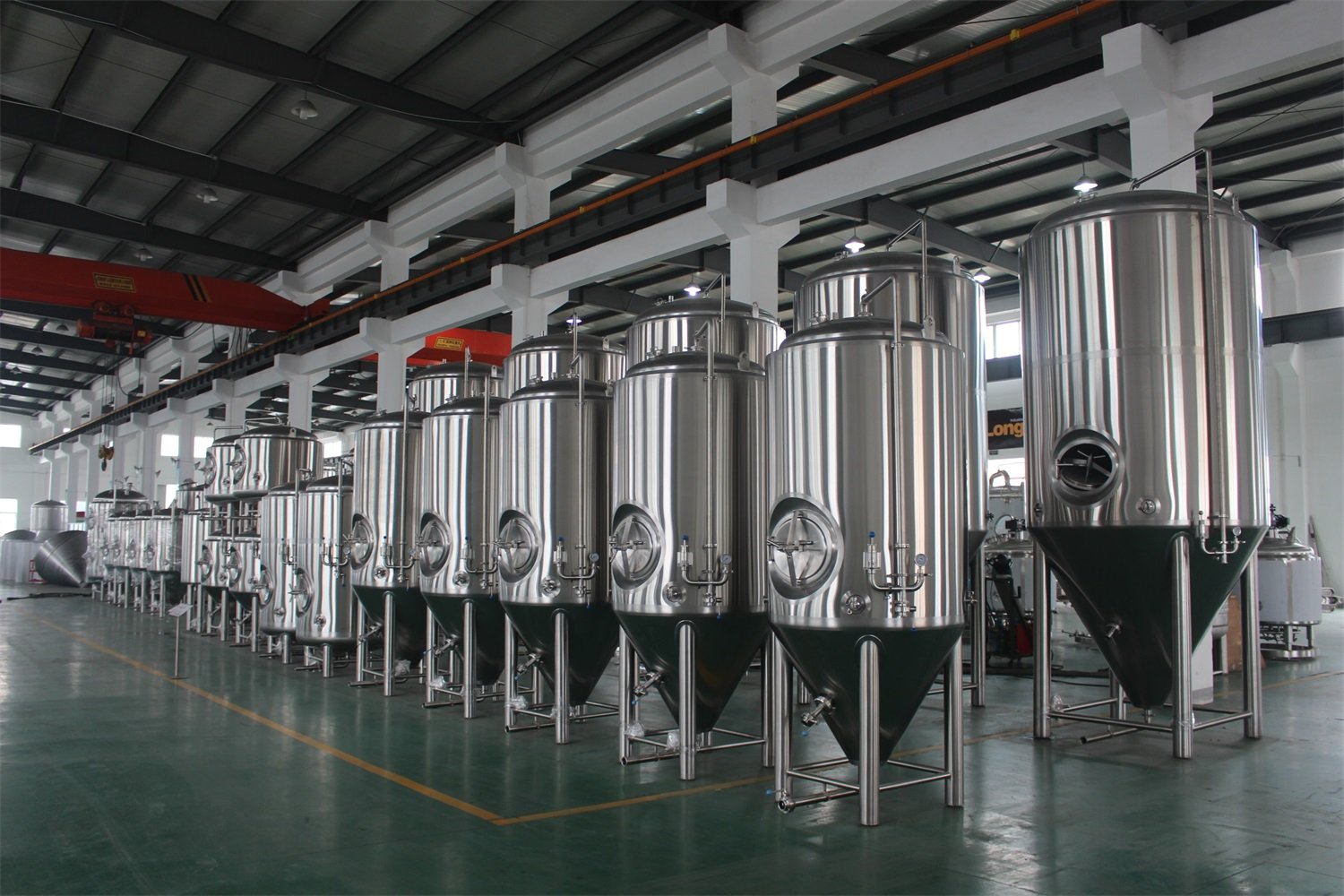Choosing the Perfect Fermentation Vessel for Your Homebrews
Introduction
If you’re a homebrewer or a professional brewmaster, you understand the critical role that fermentation plays in the brewing process. To ensure the best results and flavors in your brews, it’s essential to invest in high-quality fermentation vessels. In this article, we’ll explore the different types of fermentation vessels available, factors to consider when choosing one, and where to find fermentation vessels for sale. Whether you’re brewing beer, wine, kombucha, or any other fermented beverage, the right vessel can make all the difference.
What are Fermentation Vessels?
Fermentation vessels are containers used to house and facilitate the fermentation process of various beverages. During fermentation, yeast or bacteria consume sugars, converting them into alcohol or acids, depending on the beverage type. The right vessel can influence the fermentation process, affecting the final taste and quality of the product.

Types of Fermentation Vessels
Stainless Steel Fermenters
Stainless steel fermenters are popular choices for both homebrewers and commercial breweries. They are durable, easy to clean, and offer excellent temperature control. These vessels prevent the intrusion of oxygen, ensuring a consistent fermentation process.
Plastic Fermentation Tanks
Plastic fermentation tanks are lightweight and cost-effective options. They are ideal for beginners or those on a budget. However, they may not provide the same level of insulation and protection against light as other materials.
Glass Carboys
Glass carboys are a classic choice for homebrewers, prized for their aesthetics and ability to maintain the integrity of flavors. However, they can be heavy and fragile, requiring careful handling.
Wooden Barrels
Wooden barrels are often used for aging spirits, wines, and sour beers. They impart unique flavors to the beverages, adding complexity and character. However, they require regular maintenance and can be expensive.
Factors to Consider When Choosing Fermentation Vessels
Choosing the right fermentation vessel is crucial to the success of your brewing process. Consider the following factors before making your purchase:
Size and Capacity
The size of the vessel should match your batch size. It’s essential to have sufficient headspace to accommodate foaming during fermentation.
Material and Durability
Each material has its pros and cons, so consider the durability, insulation properties, and impact on the taste of your beverage.
Temperature Control
Some vessels come with built-in temperature control features, while others require additional equipment for temperature regulation.
Accessibility and Cleaning
Easy access to the vessel’s interior is crucial for thorough cleaning and sanitation to prevent contamination.
Benefits of Using Proper Fermentation Vessels
Using the right fermentation vessel offers several advantages that contribute to better brews:
Consistent Results
Proper vessels help maintain a stable environment for the fermentation process, leading to consistent results with each batch.
Hygiene and Sanitation
Quality vessels are easier to clean and sanitize, reducing the risk of unwanted microbial growth and off-flavors.
Improved Fermentation Process
The right vessel allows for better control over temperature, pressure, and oxygen exposure, leading to improved fermentation.

Where to Find Fermentation Vessels for Sale?
Finding the perfect fermentation vessel is easier than ever, thanks to various options available:
Local Brewing Supply Stores
Check with local brewing supply stores for a hands-on experience and expert advice.
Online Retailers
Online platforms offer a wide selection of fermentation vessels, with the convenience of doorstep delivery.
Second-Hand Marketplaces
Consider exploring second-hand marketplaces for more affordable options, but ensure the vessel’s condition is satisfactory.
Tips for Buying Fermentation Vessels
When purchasing a fermentation vessel, keep these tips in mind:
Read Reviews and Ratings
Learn from others’ experiences and choose reputable brands with positive feedback.
Consider the Brand Reputation
Trustworthy brands often provide better quality and customer service.
Look for Deals and Discounts
Search for promotions or discounts to save money on your purchase.
Maintenance and Cleaning of Fermentation Vessels
Proper maintenance and cleaning of your fermentation vessel are essential to ensure the longevity of your equipment and the quality of your brews.
Cleaning Procedures
Follow a regular cleaning routine using appropriate cleaning agents to remove residues and potential contaminants.
Sanitization Methods
Sanitize your vessel thoroughly before each use to prevent unwanted microorganisms from affecting your fermentation process.
DIY Fermentation Vessels
For the creative and resourceful brewers, here are some DIY fermentation vessel ideas:
Upcycled Containers
Transform food-grade containers like buckets or jars into fermentation vessels.
Building Your Fermentation Tank
Consider building a custom fermentation tank using readily available materials and resources.
Conclusion
Investing in the right fermentation vessel is a crucial step for every brewer seeking exceptional results. Consider the type of beverage you’re brewing, your budget, and your space constraints when choosing the perfect vessel. Whether you opt for a stainless steel fermenter or a glass carboy, prioritize hygiene, and proper maintenance for consistent, high-quality brews.
FAQs
- Q: Can I ferment beer in a plastic fermentation tank?
- A: Yes, you can use a plastic fermentation tank for beer, but ensure it’s food-grade and properly sanitized.
- Q: How do I control the temperature in a fermentation vessel?
- A: Temperature control can be achieved using various methods, including using a fermentation chamber, temperature-controlled refrigerators, or fermentation wraps.
- Q: Are wooden barrels suitable for all types of beverages?
- A: Wooden barrels are commonly used for aging spirits, wines, and sour beers, but may not be ideal for certain delicate flavors like lighter beers.
- Q: Can I ferment multiple batches simultaneously in one large vessel?
- A: Yes, it’s possible to ferment multiple batches together if the vessel has enough capacity and proper headspace.
- Q: How often should I clean and sanitize my fermentation vessel?
- A: It’s essential to clean and sanitize the vessel thoroughly before and after each use to prevent contamination.
Frequently Asked Questions (FAQ)
1) Stainless vs. plastic: which Fermentation Vessel is best for flavor stability?
- Stainless steel offers the tightest oxygen control, easiest sanitation, and durability—best for long-term flavor stability. Food-grade plastic is budget-friendly but can scratch and absorb aromas over time.
2) What size vessel should I choose for 5-gallon homebrew batches?
- Use a 6.5–7.5 gallon (25–29 L) Fermentation Vessel to provide 20–30% headspace for krausen and blow-off, reducing mess and oxidation risk.
3) How important is temperature control for a Fermentation Vessel?
- Critical. A 1–2°C swing can alter ester/phenol profiles. Prioritize vessels with jackets/coils or pair with a temp-controlled chamber and thermowell probe.
4) Do I need pressure capability (spunding) for homebrews?
- Not required, but pressure-capable stainless unitanks (5–15 psi) enable spunding to naturally carbonate, reduce ester formation at warmer temps, and limit oxygen pickup.
5) What’s the best cleaning workflow for vessels with valves and coils?
- Rinse → Caustic (50–70°C) recirculation → Water rinse → Acid rinse (if hard water/beerstone) → Final rinse → Sanitize (peracetic/iodophor). Disassemble sample valves and carb stones; replace gaskets annually or upon wear.
2025 Industry Trends for Fermentation Vessels
- Oxygen minimization moves mainstream: more home and nano brewers adopt closed transfers, CO2 purging, and DAW rinses.
- Affordable pressure fermentation: consumer-grade stainless unitanks with integrated PRV and floating dip tubes gain popularity.
- Smarter monitoring: Bluetooth/LoRa temp and gravity sensors feed mobile apps; level/pressure ports pre-installed on premium vessels.
- Hygiene-first finishes: smoother internal finishes and welded sanitary ports reduce biofilm and shorten cleaning cycles.
- Sustainability focus: better insulation on stainless, reusable CIP chemistries, and water-saving spray devices.
Fermentation Vessel Benchmarks (2024–2025)
| Metric | Typical Range | 2025 Best Practice Target | Notes / Sources |
|---|---|---|---|
| Headspace for primary | 10–30% | 20–30% for ales; 15–20% for lagers | Reduces blow-off/oxidation |
| Oxygen exposure post-fermentation | 50–300 ppb | ≤10–30 ppb via closed transfers | ASBC DO guidance |
| Temp control accuracy | ±1–3°C | ±0.5–1.0°C with probe in thermowell | Flavor consistency |
| CIP cycle time (stainless) | 45–75 min | 30–50 min with rotary spray ball | Hygienic design/EHEDG |
| Pressure capability (home unitanks) | 0–1 bar | 0.5–1.0 bar (7–15 psi) | Spunding/carbonation |
| Internal surface roughness (Ra) | 0.8–1.2 μm | ≤0.6–0.8 μm | Faster, more reliable cleaning |
Authoritative sources:
- ASBC Methods of Analysis (DO, micro): https://www.asbcnet.org/
- Brewers Association cellar and sanitation best practices: https://www.brewersassociation.org/
- EHEDG hygienic equipment guidance: https://www.ehedg.org/
Latest Research Cases
Case Study 1: Closed Transfer Upgrade Reduces Oxidation in Hoppy Ales (2025)
Background: A home-to-nano brewer reported rapid flavor fade and browning in NEIPA.
Solution: Added CO2 purged lines, pressure-capable Fermentation Vessel with spunding at 10 psi, floating dip tube, and inline DO checks at package.
Results: Packaged DO dropped from 80–120 ppb to 18–28 ppb; sensory shelf life improved by ~45 days at 20°C; foam stability scores increased on repeat panels.
Case Study 2: Surface Finish and CIP Optimization in Stainless Unitanks (2024)
Background: Intermittent contamination following dry-hop weeks.
Solution: Upgraded to Ra ≤0.6 μm internals, switched to rotary spray balls, instituted acid CIP after hops-heavy batches, and replaced worn gaskets.
Results: CIP time reduced 30%; chemical use down 20%; zero micro failures over 6 months; hop aroma retention improved due to reduced oxygen ingress during post-CIP handling.
Expert Opinions
- Dr. Tom Shellhammer, Professor of Fermentation Science, Oregon State University
“Control temperature and oxygen around the Fermentation Vessel. Those two levers dictate most of your flavor outcomes and shelf life.” - John Mallett, Brewing Operations Expert; author of “Malt”
“Specify sanitary fittings you can actually clean—sample valves, PRVs, and racking arms. Easy-to-sanitize hardware saves batches.” - Sarah Flora, Brewer and operations consultant
“Pressure-capable stainless plus closed transfers is the single biggest quality jump a serious homebrewer can make without breaking the bank.”
Practical Tools/Resources
- Brewers Association cellar/CIP and sustainability guides: https://www.brewersassociation.org/
- ASBC Methods (DO, CO2, microbiology, sensory): https://www.asbcnet.org/
- EHEDG guidelines for hygienic design and validation: https://www.ehedg.org/
- Gravity/temperature logging (Tilt, Plaato, iSpindel) and brewing calculators: https://www.brewersfriend.com/
- Supplier tech notes (GEA, Alfa Laval, Pentair) on spray devices, surface finish, and passivation
Last updated: 2025-08-29
Changelog: Added 5-item FAQ, 2025 trends with benchmark table, two case studies on oxygen control and CIP optimization, expert viewpoints, and vetted resources focused on Fermentation Vessel selection and use.
Next review date & triggers: 2026-02-28 or earlier if ASBC/BA release new DO targets, EHEDG updates hygienic design criteria, or packaged DO exceeds 30 ppb on two consecutive batches.
Share this entry
Interested in learning more about Brewing Systems including additional details and pricing information? Please use the form below to contact us!
YOLONG BREWERY EQUIPMENT FAQS
- Commercial Brewery / Craft Brewery / Microbrewery / Nanobrewery
- What is The Difference Between Craft Beer and Industrial Beer?
- The Bespoke Differences In Custom Brewing Systems
- Everything You Need to Know About Kettle Souring
- How to Choose Brewing Equipment for Your business?
- How To Choose The-Best Partner To Build Your Commercial Microbrewing System?
- Two Detection Sensors That You Need To Use In Your Brewhouse System
- Remote Control Applications in Brewing Equipment/How does it work?
- How To Clean Your Brand New Brewery Tanks?

